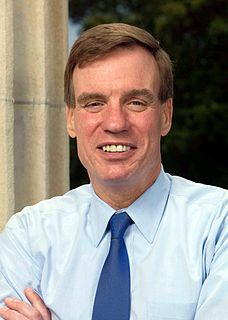
The Children's Online Privacy Protection Act of 1998 (COPPA) is a United States federal law, located at 15 U.S.C. §§ 6501–6506.

Susan Ellen "Zoe" Lofgren is an American lawyer and politician serving as a U.S. representative from California. A member of the Democratic Party, Lofgren is in her 13th term in Congress, having been first elected in 1994. Lofgren has long served on the House Judiciary Committee, and has chaired the House Administration Committee since the beginning of the 116th Congress.

Thomas Jeffery Cole is the U.S. representative for Oklahoma's 4th congressional district, serving since 2003. He is a member of the Republican Party and serves as Deputy Minority Whip. The chairman of the National Republican Congressional Committee (NRCC) from 2006 to 2008, he was, during his tenure, the fourth-ranking Republican leader in the House.

Jonathan David Leibowitz is an American attorney who served under President Barack Obama as Chair of the Federal Trade Commission (FTC) from 2009 to 2013. Leibowitz was appointed to the commission in 2004, and resigned in 2013. During Leibowitz's tenure, the FTC brought privacy cases against Google, Facebook and others for violating consumer privacy, as well as enforcement against "pay-for-delay" deals in which pharmaceutical companies paid competitors to stay out of the market. Prior to joining the FTC, Leibowitz was Vice President for Congressional Affairs from 2000 to 2004 of the MPAA.

Mark Robert Warner is an American businessman and politician serving as the senior United States senator from Virginia, first elected in 2008. He is a member of the Democratic Party, vice chair of the Senate Democratic Caucus, and chair of the Senate Intelligence Committee.

The United States Federal Trade Commission (FTC) has been involved in oversight of the behavioral targeting techniques used by online advertisers since the mid-1990s. These techniques, initially called "online profiling", are now referred to as "behavioral targeting"; they are used to target online behavioral advertising (OBA) to consumers based on preferences inferred from their online behavior. During the period from the mid-1990s to the present, the FTC held a series of workshops, published a number of reports, and gave numerous recommendations regarding both industry self-regulation and Federal regulation of OBA. In late 2010, the FTC proposed a legislative framework for U.S. consumer data privacy including a proposal for a "Do Not Track" mechanism. In 2011, a number of bills were introduced into the United States Congress that would regulate OBA.

The No Oil Producing and Exporting Cartels Act (NOPEC) was a U.S. Congressional bill, never enacted, known as H.R. 2264 and then as part of H.R. 6074. NOPEC was designed to remove the state immunity shield and to allow the international oil cartel, OPEC, and its national oil companies to be sued under U.S. antitrust law for anti-competitive attempts to limit the world's supply of petroleum and the consequent impact on oil prices. Despite popular sentiment against OPEC, legislative proposals to limit the organization's sovereign immunity have so far been unsuccessful. "Varied forms of a NOPEC bill have been introduced some 16 times since 2000, only to be vehemently resisted by the oil industry and its allied oil interests like the American Petroleum Institute and their legion of “K” Street Lobbyists."
Electronics right to repair is proposed legislation that would provide the practical means for electronics equipment owners to repair their devices. Repair is legal under copyright law and patent law. However, owners and independent technicians are often unable to make their own repairs because of manufacturer limitations on access to repair materials such as parts, tools, diagnostics, documentation and firmware.
Big Tech, also known as the Tech Giants, Big Four, or Big Five, is a name given to the four or five most dominant companies in the information technology industry of the United States. The Big Four presently consists of Alphabet (Google), Amazon, Apple, and Meta (Facebook)—with Microsoft completing the Big Five.

The SAFE Banking Act, officially H.R. 1595, full title Secure and Fair Enforcement (SAFE) Act, and also referred to as the SAFE Banking Act of 2019, was proposed legislation regarding disposition of funds gained through the cannabis industry in the United States.

Peter James Meijer is an American politician and business analyst who has served as the U.S. representative for Michigan's 3rd congressional district since 2021. He is a member of the Republican Party.

Regulation (EU) 2022/1925, commonly referred to as the Digital Markets Act (DMA) is an EU regulation that aims to make the digital economy fairer and more contestable. The regulation proposed by the European Commission in December 2020 was signed into law by the European Parliament and the Council of the EU in September 2022. It will enter into force on 1 November 2022 and become applicable, for the most part, on 2 May 2023.

The Pregnant Workers Fairness Act is a proposed United States law that would eliminate discrimination and ensure workplace accommodations for workers with known limitations related to pregnancy, childbirth, or a related medical condition.

The United States Innovation and Competition Act of 2021 (USICA), formerly known as the Endless Frontier Act, is United States legislation sponsored by Senators Chuck Schumer (D-NY) and Todd Young (R-IN) authorizing $110 billion for basic and advanced technology research over a five-year period. Investment in basic and advanced research, commercialization, and education and training programs in artificial intelligence, semiconductors, quantum computing, advanced communications, biotechnology and advanced energy, amounts to $100 billion. Over $10 billion was authorized for appropriation to designate ten regional technology hubs and create a supply chain crisis-response program. The act is aimed at competing with China and to respond to US fears of an AI Cold War.

The Open App Markets Act (OAMA) is a proposed antitrust bill in the United States Congress. The Senate version of the legislation, S.2710, was introduced on August 11, 2021, by Richard Blumenthal (D-CT), Amy Klobuchar (D-MN) and Marsha Blackburn (R-TN). On August 13, 2021, a companion bill in the House of Representatives was introduced by Hank Johnson (D-GA) and Ken Buck (R-CO).

The AmericanInnovationandChoiceOnline (AICO) is a proposed antitrust bill in the United States Congress. The legislation was introduced by David Cicilline (D-RI) in the House of Representatives as the AmericanChoiceandInnovationOnline Act on June 11, 2021. On October 14, 2021, companion legislation in the Senate was introduced by Amy Klobuchar (D-MN) and Chuck Grassley (R-IA) as S.2992.

The State Antitrust Enforcement Venue Act of 2021 is a proposed antitrust bill in the United States Congress. The legislation was introduced in the House of Representatives by Ken Buck (R-CO) as H.R. 3460 on May 21, 2021. Companion legislation was introduced in the Senate by Mike Lee (R-UT) as S. 1787 on May 24, 2021.

The Merger Filing Fee Modernization Act of 2021 is a proposed antitrust bill in the United States Congress. The legislation was introduced in the Senate by Amy Klobuchar (D-MN) and Chuck Grassley (R-IA) as S. 228 on February 4, 2021. Companion legislation was introduced in the House of Representatives by Joe Neguse (D-CO) and Victoria Spartz (R-IN) as H.R. 3843 on June 11, 2021.

American Data Privacy and Protection Act (ADPPA) is a United States proposed federal online privacy bill that would regulate how organizations keep and use consumer data. The bipartisan, bicameral bill is the first American consumer privacy bill to pass committee markup, which it did with near unanimity.









